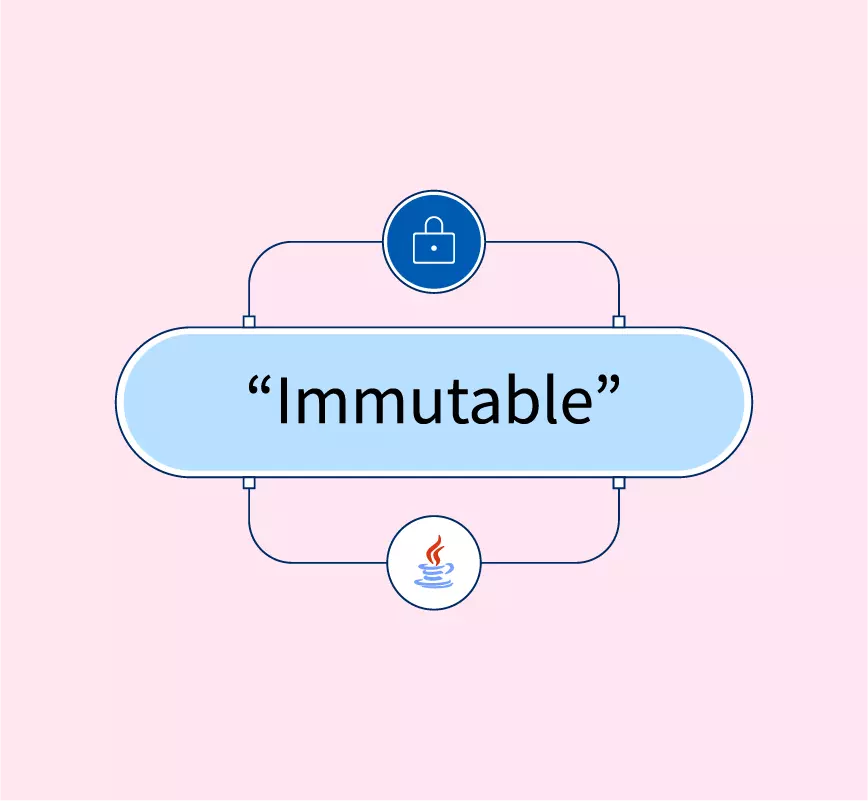Why Are Strings Immutable in Java? Checking Out the Style Choices
Why Are Strings Immutable in Java? Checking Out the Style Choices
Blog Article
Discovering the Advantages of Unalterable Strings in Modern Programming Paradigms
In the realm of modern-day programs standards, the idea of immutable strings stands as a foundation of robust software program growth. By taking on immutable strings, designers can guarantee boosted information honesty, enhanced thread safety, simplified debugging processes, increased safety steps, and effective performance optimization.
Boosted Information Honesty

By protecting against the alteration of string objects, immutability gets rid of the danger of unintended adjustments to the data they hold. This not just improves the security of the info however additionally enhances the integrity of the code that depends on these strings.
Immutability also sustains much safer multithreading environments, as concurrent accessibility to immutable strings does not present the risk of data corruption via synchronised adjustments. This home streamlines the procedure of managing strings in identical programs circumstances.
Essentially, immutability functions as a safety guard around the information saved within strings, enhancing their honesty by guaranteeing that when defined, their values stay unmodified throughout the program's execution.
Boosted String Safety And Security
Unalterable strings enhance the string safety and security of programs by ensuring that when a string item is developed, its worth can not be changed. This building gets rid of the risk of simultaneous strings trying to change the exact same string concurrently, which can lead to information corruption or inconsistent states in the program - Why are strings immutable in Java?. In a multi-threaded atmosphere, where several threads gain access to and control data all at once, the immutability of strings supplies a level of security by guaranteeing that the data continues to be unmodified throughout its lifecycle
Simplified Debugging Procedures
Provided the enhanced thread safety and security assisted in by unalterable strings, a considerable benefit arises in the world of streamlined debugging processes. Immutable strings, as soon as produced, can not be changed, making it easier to trace the circulation of data and recognize the resource of pests in a program. This immutability makes sure that strings remain regular throughout the implementation of the program, minimizing the probability of unforeseen changes that can bring about mistakes.
When debugging with mutable strings, developers commonly run into problems where a string's value is modified inadvertently, making it testing to pinpoint the source of an insect. However, with unalterable strings, the information remains the same, permitting programmers to focus on assessing the actual reasoning of the code instead of finding where and when a string was customized inaccurately.
Additionally, unalterable strings streamline the debugging procedure by making it possible for less complicated reproduction of pests. Since immutable strings do not transform state, programmers can recreate and study insects more properly, leading to quicker identification and resolution of concerns within the codebase. This structured debugging process inevitably adds to greater software application quality and enhanced overall development effectiveness.

Raised Security Measures
Enhancing information protection and strengthening system stability, the usage of unalterable strings in software application applications adds substantially to boosted safety and security procedures. Unalterable strings additionally play a vital duty in protecting against why not check here common protection vulnerabilities such as barrier overflows and SQL shot attacks, as attempts to manipulate string data at runtime are naturally restricted.
Moreover, the immutability of strings enhances the predictability of program behavior, making it easier to verify inputs and prevent unforeseen changes that can endanger safety. This predictability streamlines the process of bookkeeping and verifying code, enabling designers to identify prospective safety loopholes extra efficiently. On the whole, integrating unalterable strings into software program development methods not just improves the effectiveness and dependability of applications but additionally reinforces their durability versus safety hazards.
Efficient Performance Optimization
Building upon the foundation of enhanced security procedures attained via the usage of unalterable strings, a crucial facet to think about in software application development is efficient performance optimization. When dealing with mutable strings, operations like concatenation or substring production commonly lead to the production of new string objects, bring about memory expenses and raised processing time. Nonetheless, with immutable strings, these procedures can be enhanced to boost performance. By allowing strings to stay stable and consistent, immutable strings promote far better memory management and caching opportunities, ultimately enhancing the overall performance of the software.
Given that immutable strings can not be modified when developed, they can be shared across threads without the risk of unanticipated modifications, minimizing the need for synchronization mechanisms and improving concurrency. Immutable strings streamline debugging procedures as developers can rely on that a string's value will certainly continue to be constant throughout the program's implementation, getting rid of prospective mistakes created by mutable state modifications.
Conclusion
In verdict, the benefits of using unalterable strings in modern-day programs paradigms can not be overstated. Boosted information honesty, boosted thread safety, simplified debugging procedures, enhanced protection actions, and efficient efficiency optimization all add to the overall performance of shows jobs. By integrating immutable strings into shows practices, programmers can benefit from a much more trusted and durable codebase.
Immutability, a crucial feature of strings in shows languages such as Java and Python, makes sure that when a string object is developed, it can not be modified or changed.Unalterable strings improve the thread safety and anchor security of programs by making certain that once a string item is produced, its value can not be customized. Immutable strings also play an essential role in stopping common safety vulnerabilities such as barrier overflows and SQL shot attacks, as attempts to go to this site adjust string data at runtime are naturally restricted.
By allowing strings to stay unchangeable and consistent, unalterable strings assist in much better memory monitoring and caching chances, ultimately improving the total effectiveness of the software.
Unalterable strings streamline debugging procedures as designers can trust that a string's worth will certainly stay constant throughout the program's implementation, eliminating possible errors created by mutable state modifications.
Report this page